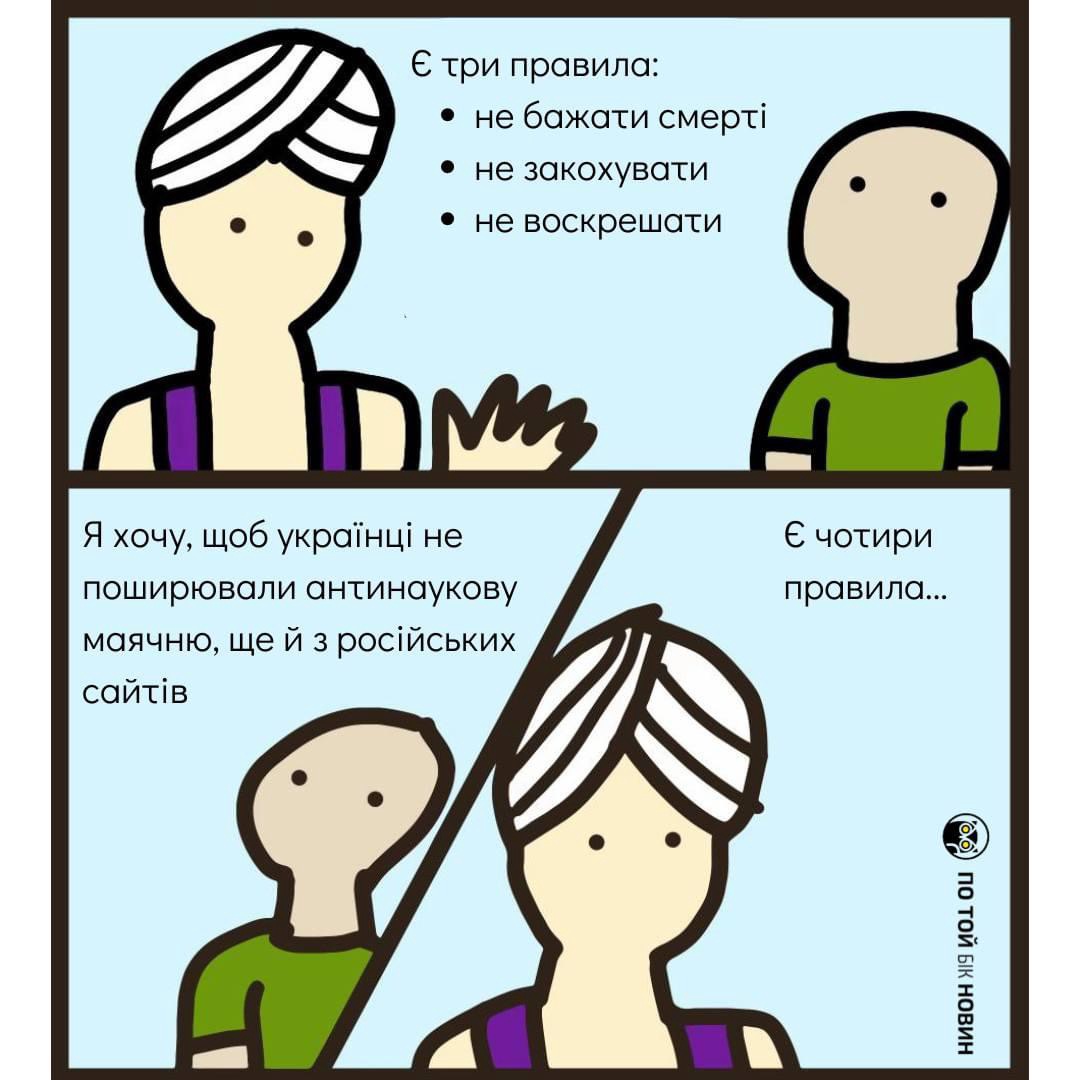How pseudoscientific nonsense about genetics spread from russian websites to Ukrainian Facebook

It never happened before and here it is… it’s happening again! Ukrainians are once more sharing old russian fakes on social media. Even though these posts are now in Ukrainian, that doesn’t make things any easier.
What’s this all about?
A post about people and genetics recently appeared on social media. It went viral online, shared nearly 10,000 times on one page alone! The post claims that our abilities and intelligence are passed down to our children based on their gender and that of their parents.
“Intelligence is not passed down from father to son. If you’re a genius, your son won’t inherit your intelligence 100%. Similarly, idiocy isn’t passed down from father to son either. If you’re an absolute idiot, your son won’t be as idiotic as you (and congratulations for that!). Intelligence can only be passed from a father to a daughter, and even then, only half of it.”
The post is long, but debunking every claim isn’t necessary. The first thing to know is that this information originated from the internet, specifically a pseudoscientific article published in 2017 on the russian site dzen.ru. Secondly, the content is pure pseudoscientific nonsense.
To understand why, we spoke with psychologist and psychogeneticist Oleksandr Bilous.

Where did these misleading ideas come from?
Oleksandr Bilous explains that this fake may have been inspired by early studies on the inheritance of intelligence conducted in the late 19th century.
“This research, by Francis Galton, examined wealthy, well-known English families whose children attended elite schools. He compared academic success across several generations. But in modern science, this study is noteworthy only for its historical value and... its inaccuracy.
We now understand that if a father had three sons - one smart, one handsome, and one not so bright - the smart one would have studied at Eton, while the others wouldn’t have been included in the research sample. This leads us to conclude that not all children, but only SOME children might inherit something.
As for daughters, most were educated at home and had limited opportunities to develop their abilities,” Bilous explains.
Intelligence isn’t stable like blood type
The article in question, written by an unknown author, suggests that intelligence can allegedly be passed down by a father or mother like a blood type. The reality, however, is quite different.
“The intelligence passed down from parents is often a blend from the father and mother, and no studies show a clear link to gender. There are only a few studies suggesting a statistical correlation between a father’s age and higher intelligence in his children. But even in these cases, it’s debatable whether the factors are hereditary or acquired.” explains Bilous.
Bilous adds that heredity is just one piece of the puzzle.
Regardless of how intelligent the parents are, if they raise their children in a poor educational environment, their intelligence may not reach its full potential.
Moreover, it’s quite possible that the father’s age plays a role not through genes, but through the opportunities provided. If an older man decides to have a child, he might be able to provide more resources for nannies, tutors, quality schools, and clubs.
“All of this will have a great impact on the child’s development not through genes, but through opportunities.Intelligence is inherited as a range of possibilities - from a base level to the maximum potential for that individual. This range is an average of the father’s and mother’s intelligence. Intelligence then develops through language, motor skills, and the environment. Even with moderate intelligence, parents can raise a child who surpasses them intellectually, given the right conditions and motivation,” the psychogeneticist notes.
In addition, intelligence has many facets. We talk about emotional intelligence, social intelligence, and more. But, if intelligence were solely determined by genetics, it would be too much too simplistic.
Finally, we offer a word of advice. If you come across a text discussing complex topics like genetics without an author or source, don’t share it on your page. There’s no need to spread fakes, especially when they originate from the country of our enemies ![]()
Prepared by Natalka Bushkovska.






